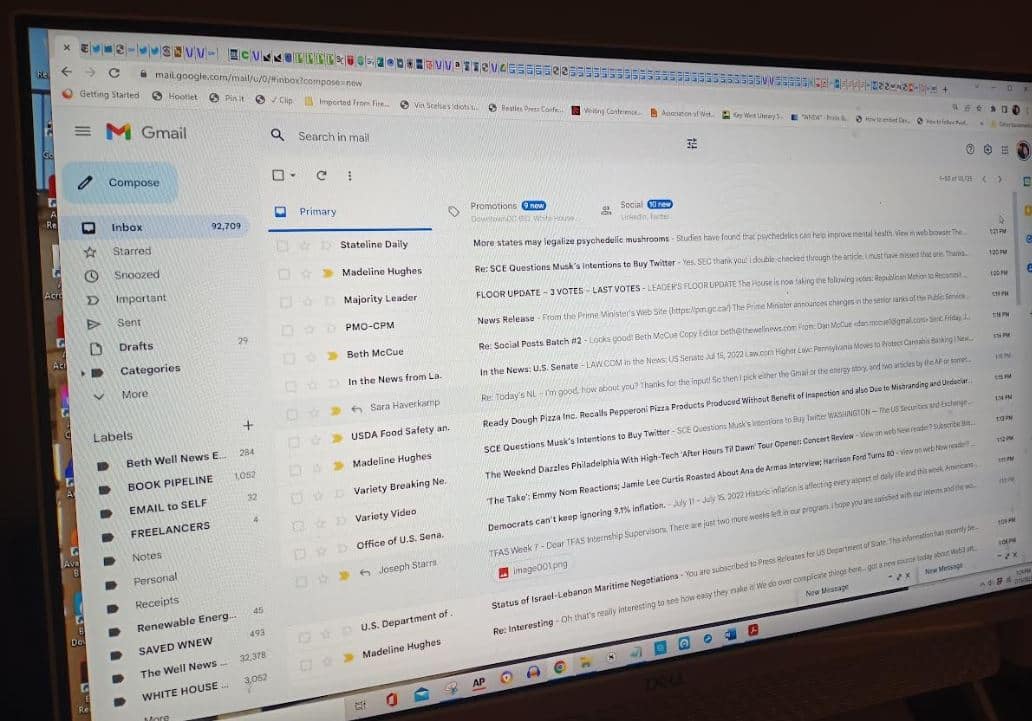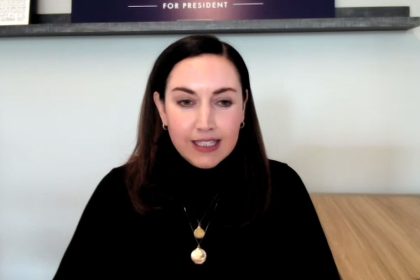Gmail Users Widely Pan Proposal to Let Political Ads Bypass Spam Filters

WASHINGTON — The ultimate verdict — a final decision by the Federal Election Commission — may not be out, but a lengthy document released by the agency Thursday evening suggests a vast number of Gmail users are dead set against the tech giant allowing political ads and solicitations to bypass its spam filters.
The release came after the commission voted to extend the comment period on Google’s request through Aug. 5.
Google petitioned the FEC in June to allow candidates, political party committees, and leadership political action committees to apply for a special “pilot program” that would make their messages exempt from Gmail’s spam detection systems.
According to Google, the program would not only improve “inboxing rates” for political bulk senders, but would allow for “more transparency into email deliverability.”
As outlined in its filing, Gmail users would receive a notification asking if they would like to continue receiving the emails — but only after the messages first start arriving in their inbox.
In addition, it said, the spam filters would still be able to grab emails deemed to be phishing, as well as those containing malware or illegal content.
The creation of the program appears to be a response to persistent complaints from Republicans that algorithms the company employs across its services have a built-in bias against conservative and GOP marketing.
The issue was reignited ahead of the midterms after a North Carolina State University study found that Gmail was more likely to mark Republican emails as spam when compared to other email services, like Outlook.
Google responded to the study by saying Gmail users were more likely to mark the Republican messages as spam themselves.
But then, on June 21, it submitted its request for the commission’s approval of its spam filter avoidance scheme for campaign emails and political fundraising pleas.
The FEC asked the public to weigh in, and on Thursday, released 217-pages of responses from evidently very annoyed Gmail users.
“I recommend denying the request for Google to deliver political emails directly to mailboxes Their proposal argues it would ‘improve the user experience of Gmail users.” As a Gmail user, I disagree with this statement. Getting more messages I consider spam is NOT improving my experience,” said user Bernard.
Meanwhile, “Cypher Dragon,” who described him or herself as “a concerned voting citizen,” said, “this should be denied on the simple fact that it is not OPT-IN.
“There is absolutely no reason to force email (or physical mail, but I digress) on anyone that has not explicitly asked for these mails to be delivered,” Cypher Dragon continued. “This simple fact should be enough to immediately deny the request on the face of it. However, there are also plenty of privacy and security concerns on top of that fact that only add further weight to make it clear that such ideas are DOA.”
“Please do not allow political campaigns to bypass these restrictions,” said one Tabor Wells. “Political organizations already regularly share email addresses between each other and it’s impossible to fully unsubscribe yourself. I’ve received many political emails over the years that don’t even offer an option. Or require you to login to an account not in my control to adjust my email preferences.
“My spam blocking is the only thing I have left to keep my mailbox that I’ve had for well over a decade usable. This proposal will degrade my right to privacy and to choose who I wish to communicate with in my email,” Well said.
“Unsolicited email is spam no matter who is sending it. Deny this,” demanded Jamal Qureshi.
“The application should be denied,” said Jack Merwin. “When a user creates an email account, there should be a reasonable expectation that any mass mailings that user did not specifically sign up for should be directed to a spam filter until the user whitelists that sender.
“Allowing unasked-for political mail is in no way deserving of special exemption,” he continued. “This will just create more annoyance for the owners of Gmail accounts and provide no benefit to the political discourse of this country.”
“Absolutely not. This is a terrible idea that would open the floodgates to even more spam and abusive political advertisements,” said Joe Romeo.
“I would like to voice my opposition to Google’s proposal that political emails be allowed to bypass spam filters,” agreed Dale Price. “This form of email messaging is often manipulative, dishonest and seeks to exploit people financially, much like everything else that gets sent to spam.”
“I would like to express my opposition to Google’s political email pilot program,” added Rachel Sortino. “I already get more political emails than I care to deal with, even with clicking unsubscribe on most of the emails I get, I see no benefit to the average citizen in making it even easier for political campaigns to blast us with even more divisive and questionably true rhetoric. We are exposed to political ads everywhere we go for the 6+ months leading up to every election, we should not make it any easier for them to access our inbox.”
Yonah Walter said, “I am writing to express my extreme disapproval of Google’s suggested pilot plan to allow emails from political action committees to bypass spam filters. I speak from over 20 years’ experience in technology and technological communication — as a software engineer, developer, and analyst: this plan is a terrible idea, and does not serve the public.
“Already, PACs and other political groups bombard the public constantly with phone calls, TV ads, and targeted ads on social media and in our web browsers,” he said. “Allowing these groups access to our email inboxes — already a major source of hacking, phishing, and other identity theft — only exposes us to more avenues for attack. One need only research the history of spam calling to see how exceptions made for political groups leave loopholes large enough to fit the entire voting public into.
“If PACs and other groups are worried about reaching the public using only the ‘limited’ means currently available, one wonders how sending more spam emails to the public will break through the cacophony of ads.” Walter continued. “It is similarly not hard to see that the oversaturation of political ads in those other media, particularly during election season (which extends to a year or more before Election Day), have created the very imbalance in signal-to-noise that this plan claims to address.
“Spam filters exist to give users some means of controlling the content received in their inboxes. Taking away that control renders the entire endeavor pointless; so many of us already receive so much political spam — emails which may include links to unknown websites which secretly bill users for recurring donations or even secretly harvest user data. Keep users in control of their content,” he concluded.
The Google Advisory Opinion Request is No. 2022-14 on the FEC website.
Dan can be reached at [email protected] and at https://twitter.com/DanMcCue
























